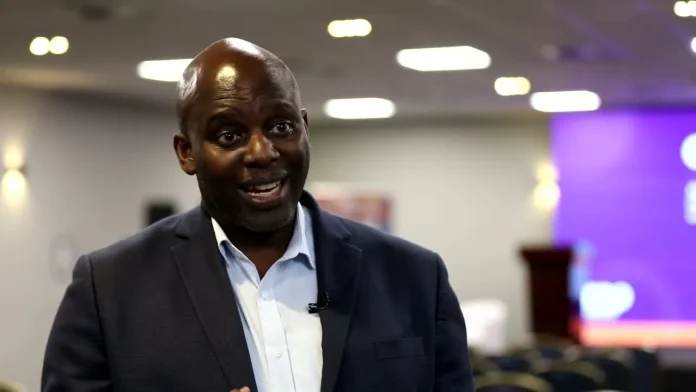A prominent governance scholar has thrown his support behind the Cabinet Secretariat’s recent directive requiring ministers to obtain Cabinet approval before making major policy announcements, arguing the measure strengthens governmental coherence rather than creating bureaucratic bottlenecks.
Prof John Osae-Kwapong, Democracy and Development Fellow at the Centre for Democratic Development (CDD-Ghana), described the directive as an essential step toward maintaining policy discipline and ensuring that government communications reflect unified positions. His comments on the Asaase Breakfast Show on Tuesday provided academic validation for what some might view as a constraint on ministerial autonomy.
The directive, issued in a circular dated October 27 and signed by Cabinet Secretary Professor Kwaku Danso-Boafo, emphasized that non-compliance constitutes a breach of constitutional protocol and undermines collective government responsibility. The memo reportedly followed observations of a growing practice where ministers publicly announce initiatives purportedly on behalf of government without prior discussion or approval.
Prof Osae-Kwapong framed the directive as a reminder rather than a new restriction, noting that it simply reinforces existing constitutional requirements for policy formulation. The memo is reminding ministers to follow due process, he explained, emphasizing that clarity and coherence depend on announcements reflecting government’s official policy rather than individual ministerial preferences.
The governance expert warned that allowing ministers to independently announce major policies creates significant risks for any administration. If every minister announces a new policy independently, you risk chaos and incoherence, he noted. This concern appears particularly relevant given that Ghana’s current administration includes multiple ministries with overlapping mandates and interdependent policy areas.
Some observers have raised concerns that requiring Cabinet approval for all major announcements might slow governmental responsiveness, particularly in crisis situations requiring quick decisions. However, Prof Osae-Kwapong dismissed these worries, arguing that structured policymaking actually enhances efficiency. The directive simply ensures that the right deliberations happen before decisions are made public, especially where a policy impacts multiple ministries or agencies.
His perspective suggests that the time invested in Cabinet coordination prevents more significant delays caused by policy contradictions, reversals, or clarifications that would otherwise become necessary. A minister announcing a position that contradicts another ministry’s approach creates confusion that requires subsequent resolution, potentially wasting more time than proper coordination would have taken initially.
The economic dimension of uncoordinated announcements adds another layer to the discussion. Prof Osae-Kwapong highlighted that whatever a minister says sends signals to investors, who monitor government communications for policy direction. Unvetted announcements could trigger negative reactions or uncertainty in financial markets, potentially affecting Ghana’s ability to attract investment or maintain economic stability.
This concern seems particularly salient given Ghana’s ongoing efforts to stabilize its economy and rebuild investor confidence following recent financial sector challenges. Mixed signals from government ministers could undermine these efforts, making policy coordination a matter of economic necessity rather than merely bureaucratic preference.
According to the Cabinet circular, ministers have been directed to submit all proposed policies, programmes, and legislative initiatives to the Cabinet Secretariat through their Chief Directors for formal inclusion on the Cabinet agenda. This procedural requirement aims to ensure systematic review before public announcements.
To prevent the directive from creating bottlenecks, Prof Osae-Kwapong advised the Cabinet Secretariat to prioritize speed without sacrificing deliberation. The goal should be to prevent bottlenecks, he said, noting that ministers should get timely audience so that good policies don’t get stuck in the process. His recommendation suggests that effective implementation requires both compliance from ministers and responsiveness from the Cabinet Secretariat.
The governance scholar concluded by expressing hope that ministers would voluntarily adhere to the directive rather than requiring disciplinary enforcement. I hope it doesn’t get to the point of punishment, he said, characterizing the measure as being about strengthening governance rather than policing it. This framing positions the directive as a capacity-building tool rather than a punitive mechanism.
Former Information Minister Kojo Oppong Nkrumah also weighed in on Asempa FM’s Ekosii Sen show, stressing that ministers do not operate independently as their mandates come directly from the President. His comments reinforced the constitutional principle underlying the Cabinet directive.
Oppong Nkrumah questioned why any minister would announce policies without approval, suggesting that such behavior raises serious questions about governmental management. If this is happening, it raises serious questions about the kind of government we are running, he reportedly said, where ministers can announce policies or programs independently.
The convergence of views from both governance scholars and political figures suggests broad recognition that policy coordination serves important constitutional and practical purposes. However, the effectiveness of this directive will ultimately depend on how the Cabinet Secretariat manages the approval process and whether it can maintain both rigor and responsiveness.
Ghana’s constitutional framework establishes Cabinet as the principal instrument of policy formulation, making collective responsibility a foundational principle rather than an optional practice. The recent directive essentially reminds ministers of existing requirements rather than imposing new restrictions, though its issuance suggests concerns about compliance with established procedures.
Whether this directive represents a response to specific incidents of premature announcements or a broader effort to tighten governmental discipline remains somewhat unclear. But Prof Osae-Kwapong’s supportive commentary provides intellectual backing for the measure, framing it as essential for maintaining the coherence and credibility that effective governance requires.
Source: newsghana.com.gh











